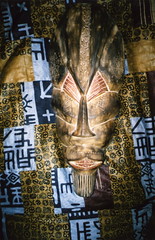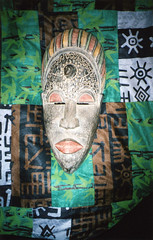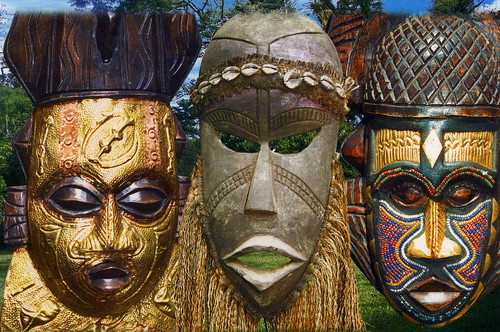Anatomy Lessons
As part of an occasional series, a few items briefly noted, this time an anatomy lesson of sorts.
I. The Emperor's Teeth
Last year I pointed to an article that had brought me much comfort, the account of a wonderful taxicab conversation with the cab driver who — well, you should read all of it in his voice (it's a few paragraphs down the linked page).
"Funniest trip I ever had to make," said the taxi driver. "Now, you'll like this one..."The humour gave me much comfort and I filed away the idea of eventually writing something of substance on said tooth, said transporter or whoever it was that had collected or bid for it.
"So I gets a call on me wireless," he continued, "an' 'e says; 'Ere, I've got one for you.'
"I says, 'Oh, yeah,' and 'e says, 'Yeah, you're gonna like this one, I want you to go to this address, in Kensington, pick up Napoleon's tooth and take it to Swindon for auction.'
"I says, 'You what ?' 'E says, 'You 'eard. Napoleon's tooth. An' I 'ope you're insured 'cos it's worth 8,000 nicker.' ...
Serendipity struck when I noted a related story last week; the headline: Napoleon's Toothbrush Finally Has a Home
The Wellcome Collection, as the new museum is called, includes early anatomical models, surgical instruments, prosthetic limbs and other examples of medical progress, as well as eye-catching objects ranging from Peruvian mummies and Chinese torture chairs to Greco-Roman phallic amulets to Japanese sex aids.I immediately wondered whether Henry Wellcome was the collector who had been the successful bidder for Napoleon's tooth and whether it was also part of his collection. And if not, the obvious question needed to be raised: was someone somewhere considering reuniting Napoleon's tooth with Napoleon's toothbrush? Inquiring minds want to know.
It also presents what can only be called celebrity curiosities, like Napoleon's toothbrush, Charles Darwin's walking stick, Benjamin Disraeli's death mask, Horatio Nelson's razor, Florence Nightingale's moccasins (worn during the Crimean War) and some locks of George III's hair.
These are strange days and perhaps the cabdriver's eventual punchline bears repeating
"Well yeah, still, I'll tell you somefin'. You gotta 'and it to his dentist, 'aven't you? 'E shoves that tooth to one side, an' e says, 'I'll 'ave that and I'll keep 'old of it till someone invents eBay.'"
I wonder when Napoleon's tooth was excised. Was it before or after he crowned himself emperor? Would the course of world history have been different if he used a chewing stick instead of a toothbrush?
Some poetry is in order:
The Emperor's Teeth
The Emperor has no teeth
His toothbrush plain disappeared
But after much blood, sweat and tears,
Teeth and toothbrush were reunited after two hundred years.
II. The Bible and the Ganglion
I once had a recalcitrant ganglion — don't you love that word ganglion? It just sounds gangly, like an uncoordinated teenager in the throes of a growth spurt. Perusing dictionaries you'll read this definition: "rich fluid enclosed within fibrous tissue and usually attached to a tendon sheath in the hand, wrist, or foot". Well talking of growth spurts, one of the hundreds of ganglions in my body suddenly started swelling one day on my wrist. It was mostly benign, a little bump that I paid no attention to for a month or so, after which time, however, the enlarged fluid sack began to pinch a nerve on my wrist. That drew my attention because the pain was as most pain associated with the nervous system is, sharp and debilitating. The ganglion turned from recalcitrant to excruciating.
The American health care system may be a little sick these days but the university doctors that I consulted back then did their best to provide relief - a little syringe plunge to drain the fluid. I was a little curiosity for the trainee doctors. After a few months of weekly treatment "It will go away soon, just let us know if it gets too painful", and with their patient increasingly bewildered by the seeming randomness of the sharp pangs of pain, the surgeons were called in, and well, they did what surgeons do, they exercised their scalpels, dove in and snipped. They called the procedure a ganglionectomy - that word also sounds delicious and loopy and rolls off the tongue quite felicitously; I like the "nectomy" part especially, like the verb to dissect, it is onomatopoeic perfection. Incidentally the pill-swallowing post surgery was, how to put it, interesting, but that was another story.
In any case, my doctor uncle later on told me how he would have treated my case had he been consulted. What he had been taught at medical schools in England, Ghana and Nigeria was that the time-tested treatment for recalcitrant ganglions is the forceful impact of a heavy object.
"Sometimes a good whack cures this kind of thing."Indeed his English resident had suggested holding the patient's wrist on the table and using a heavy book like the Bible to hit the bump. He was surprised that my American doctors hadn't done the deed, perhaps they were being too careful — afraid of the insurance companies and all that...
Every so often, as my eyes pass over the little scar tissue, my memento of that episode, I think to that incongruous image of a heavy bible dropping with vicious, but medical, intent onto my supine wrist.
I still wonder, did I really need to subject the Harvard endowment to $9,000 dollars worth of surgery when a twack with a King James bible would have done the efficacious deed? For that matter, did it matter what version of the Bible was used? Would a Revised Standard Edition have worked? Indeed did it have to be a bible? Would a telephone book have worked its numeric charm? Was there clinical significance in the choice of a holy book or was the religious designation simply a placebo effect of sorts? Was it a mere article of faith? Would a Koran, Torah or some other Holy Book have done the deed? I have visions of a rural hospital somewhere, say Libya, with a villager complaining of ganglionic discomfort. What would the Bulgarian nurse practitioner prescribe? What cultural sensitivity does the Hippocratic oath entail?
I have a quite hefty New Oxford Annotated Bible (with the Apocrypha) on the bookshelf and it always give me pause when I read it because of the literal connection I've outlined between body and soul — sidenote: do the Apocrypha have relevance here? I'll note without comment that, serendipitously, said bible is nestled between Kwame Gyekye's Tradition and Modernity and Hans Christian Andersen's Fairy Tales, a delightfully-illustrated version. Would any of those tomes have provided faster relief?
Would The Riverside Shakespeare fit the bill, the Bard's comedies and tragedies have been known to work wonders elsewhere? Or does the weighty object need to be a softcover book? How did doctors come to learn about this remedy? Is it an old wives' tale that doctors spin to impressionable young trainees? What about Karl Marx's Capital Volume III - surely a Penguin classic, let alone a critique of political economy, might do, or would I need the later and slightly heftier volumes on the theory of utility and surplus value? Or, since I'm discoursing on matters dyspeptic and poetic, would Anthony Burgess's The Complete Enderby have worked? Or would a lighweight tome like Anthony Winkler's The Lunatic do the deed (a new edition came out last month)? There I was reading it last year.
Sidenote: I have a Nigerian friend who used to tell of how he and his siblings would be punished as children. They would be forced to walk up to their father holding up a bible to receive a few well-chosen whacks of the cane - at such times, dropping the bible was a definite no-no and it heightened the dread. I couldn't help but be reminded of that curious ritual (was the punishment corporal or psychic I wonder?) when I read Chimamanda Ngozi Adichie's Purple Hibiscus a few years back - the mystery of the African father and Serious Religion.
And to digress further on matters of the soul, I've heard that one of the reasons people in Northern Ghana vote the way they do is that the political bosses go around before election day accompanied by clerics, and make recalcitrant villagers pledge to vote the right way on the handy Koran. I've always thought that this was a stereotype of pork-barrel politics (or perhaps beef in this case) adapted for the supposedly religious, backward and illiterate northerners - even as said northerners are often far more worldly and cosmopolitan than the rest of Ghana. And surely our electorates were more sophisticated these days? But political scientists don't really know why voters do the things they do in the comfort of a voting booth. What has been happening in the USA recently after all? Perhaps the choice of book does matter.
But to return to matters ganglionic, this being the web, perhaps someone somewhere could eventually resolve these open issues, namely:
- Has a doctor ever whacked your ganglion?
- And if so, what book or implement did he or she use?
III. Faux Boils
Apropos ganglions:
"I'm tired of hearing about your faux boils"That was what someone very dear to me exclaimed a couple of weeks ago in mock exasperation at one of my discursive tales. I believe she meant "foibles" although the notion of fake boils, beside being hilarious, also seemed to work. A sociolinguistic friend branded the malapropism as folk etymology rather than eggcorn. Still, I like the coinage and it seems relevant since I've been dealing with a plagiarized something-or-other these past few weeks. Ghana must go as they say.
IV. The President's Polyps
The novelist and gothic satirist Will Self is no stranger to anatomy and on it he tends to veer towards the grotesque. Last year he riffed on Haydn's Nasal Polyp:
I've been toying with a short story of this title for years, ever since hearing – or thinking I heard – a Radio 3 announcer say, with predictably risible stuffiness: 'During the winter of 1772, Haydn, then resident in London, found himself unable to compose, so troubled was he by a nasal polyp..'. There was something about the notion of Haydn's nasal polyp – rather like Flaubert's parrot, or Lenin's brain, or Churchill's black dog – that seemed almost purpose-built for a story title. Not that I really wanted to write anything serious about Haydn: this was going to be more a piss-take of that particular strain in contemporary letters, perhaps exemplified by the titles above, that seeks out profundity by yoking a mundane, or curious, thing – parrot, brain, polyp – to a great name.He then went on to note a case of literary serendipity shared with Ian Rankin apropos the conductor's nasal nostrum.
Now you can probably guess why I was drawn to that piece and its confluence of small things and cultural observations let alone the fact I'm a big fan of Flaubert's Parrot - Julian Barnes' novel that is.
Well yes, it was the polyp. What the hell was a polyp, I wondered? The word sounds polymorphous, polyandrous, poly-something-or-other. When you pronounce polyp, you feel as if you're missing something, it seems curt, abbreviated even. It stands to reason that it designates a tuft of tissue, a small growth or tumor.
This came to mind when it was announced that George W. Bush had five polyps removed in a routine colonoscopy last Saturday. There was a pleasing symmetry of the image of the keys to nuclear missiles being handed over to Mr Cheney just before the surgeon's scapels was applied to that area.
Now presumably nasal polyps have a different impact than polyps from you-know-where but it seemed that some dots needed to be connected. The President's polyps have now displaced the conductor's polyps in the panopticon, or rather the pantheon, of polyps. Hadyn must surely be turning in his grave. I wondered whether Haydn's music was the kind of thing Mr Bush listened to on the iPod his daughters gave him for his birthday.
I do hope that Will Self writes his piece and, further, that he manages to tie in the five presidential polyps to give the requisite historical sweep that this story deserves. If not I'll file that tidbit around and perhaps get around to writing something of substance with it, perhaps linking things to Napoleon's tooth — Emperor to conductor to Decider. In parting one has further questions:
- Where will the five polyps live once the doctors are done with them?
- Will they be preserved as a whole or separately to be studied by future generations?
- Will the 43rd President of the United States change his stripes now that they have been excised?
- Will the course of the American Empire later be judged to have turned on said polyps?
- Furthermore, will future curators of the Wellcome musueum seek to gain access to them rather than the undoubted presidential museum that is being planned somewhere in Texas?
V. Body: A Playlist
I was recently reading Mingering Mike: The Amazing Career of an Imaginary Soul Superstar and in the spirit of that chance discovery I've been thinking that if I ever decided to be the svengali of a boy band that I might well call them The Five Polyps. Their demo for their first album, Napoleon's Tooth, might be the breakout ballad, The Recalcitrant Ganglion. The b-side would be the funk track Faux Boils.
As usual, a short playlist founded in reality seems appropriate.
- Raphael Saadiq - Body Parts
An instant vintage affair from one of Oakland's sons of soul - The Jacksons - Body
The Victory album doesn't get as much love as it should. I believe Jermaine and Tito orchestrated this dance track reminiscent of the earlier Shake Your Body Down To The Ground from the Destiny album - Sonny Rollins - The Serpent's Tooth
On an album with Miles Davis, a young Sonny stretched out. - Ohio Players - Body Vibes
The funk was on fire with these brothers - Bootsy Collins - Body Slam
It's about the Pinocchio Theory as Bootsy would sing as he competed in those funky seventies. Did he deal with Haydn's nasal polyp one wonders? Wasn't he Parliament/Funkadelic's Sir Nose or is my attribution sloppy? - James Brown - Bodyheat
The godfather of soul brought the motherlode of funk. He is sorely missed. - Nas - Don't Body Ya'self
The dark prince of hip-hop goes pidgin on everyone and body parts start flying at the lyrical onslaught. 50 Cent got downgraded by a quarter. - Johnny Gill - Wrap My Body Tight
Johnny Gill provides the counter and seeks comfort - R Kelly - Your Body's Callin'
Hmmm. He is obsessed with bodily functions isn't he? No comment. - Me'Shell Ndegéocello - Body
Me'Shell was seeking a comfort woman a few years ago. One hopes her search was conclusive. - Coleman Hawkins - Body And Soul
Perhaps the greatest solo in jazz history, this 1939 excursion still delights with its emotion. - Dwele - Flapjacks
I'll end with Dwele who was so great, exuberant and soulful in last night's concert in Oakland. There were many moments of musical genius but the most sublime was when he orchestrated an expedient audience choir on top of the laidback groove. The ladies in the audience would hum "la la la la la / da da da da da / paaaa daa daaaa" And the men would punctuate in harmony:"I'm digging your flapjacks"
As The Wife and I sang and shook our behinds in soulful harmony we were sated by the celebratory vibe. We had paid our soul insurance and our bodies and soul could receive treatment from Doctor Soul himself. Amen. Hallelujah.
Note: since this is a family blog I'll add the obligatory disclaimer. There is no need to elaborate on what body parts flapjacks refers to. It's a metaphor for the soul, not the body.
File under: body, soul, language, anatomy, teeth, Napoleon, medicine, health, science, bible, humour, ganglion, polyp, Bush, life, literature, Will Self, serendipity, apophenia, perception, observation, ephemera, Small Things, culture, toli









